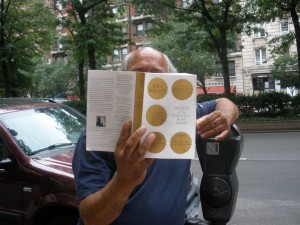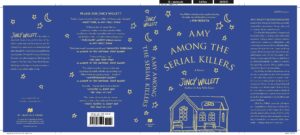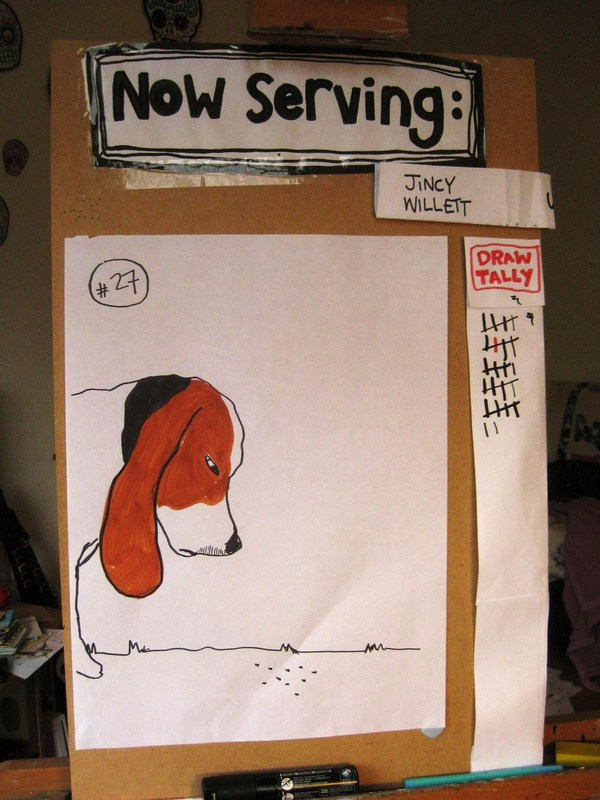Post Category → Not only that
Twinkle, Twinkle (Bat Chase)
This is an old commissioned piece (McSweeney’s) which had to be about an idea from Fitzgerald’s Notebook. I chose: A bat chase. Some desperate young people apply for jobs at Camp, knowing nothing about wood lore but pretending, each one.
TWINKLE, TWINKLE
The first thing that happened was when her mother pulled up to let her off in front of the church, and Caro was in such a hurry to get out that she opened the passenger door too soon, before they’d gotten up next to the curb, but they were close enough so that the door edge dug into the grass, and she started to get out, but her mother said, “Wait, don’t get out yet, I have to back up,” and Caro, poised half out of the car, stared at the wide curved door hinge right in front of her, a thing she’d never seen before, as the car strained in reverse, and then something cracked with a deep unresonant twonk. “What was that?” her mother asked. “Why can’t I back up?” And then, “What have you done?” Her mother tried to drive forward, but that didn’t work either, because the door was stuck open at an exact right angle to the length of the car. When Caro stepped out into the street the door edge lifted free, but still it wouldn’t close, not even with Pastor Bosworth and the Dugdales pushing on it. Everybody crowded around, pointing. “Why didn’t you tell me to stop?” her mother asked. “What was the point of just sitting there and watching it happen?” Caro reached into the car and grabbed her suitcase. “I’m sorry,” she said. “Do you want me to not go now?” “What would be the point of that?” said her mother. In the end Caro stood on the church lawn with the others, the Bosworths and the Dugdales and all the Pioneers and the other two Pilgrim counselors, and watched her mother perform a sweeping U-turn and roll away, around the corner and down the middle of Broad Street toward the Sunoco station, with a funeral line of cars behind her and the right rear door sticking straight out like a broken wing.
Caro had been in a hurry to get there early so she could ride with Pastor Bosworth, whose wife and kids were going separately in the station wagon. She would sit up front in the lime green VW, with the two other counselors in the back, and they would talk about metaphysics. After the last fellowship meeting she had told him that her faith was beginning to slip away, which was an understatement. Her faith hung by a thread. Sometimes when they talked she was sure he knew this. Last Saturday, during the bottle drive, she had asked him if a good person could find salvation even if he didn’t believe, and Pastor Bosworth had looked right at her as if she were an adult, and she had seen regret in his Prussian Blue eyes. He hadn’t wanted to say “No,” but he had done it anyway. This was a deep compliment. He was younger than her father, and he smelled like cherry tobacco. When she had tried to imagine Pioneer Retreat Weekend she had never gotten farther than the hour-long ride to Weekapaug—the part that really mattered. But of course the second thing that happened was that the VW was packed full already, with Marianne Plummer, who was only the corresponding secretary, in the front seat beside him, whipping her long hair around, laughing her brassy laugh, and Caro, Pilgrim President, had to ride in the church bus with the junior high Pioneers. All the way there she kept her face turned to the window. She had traveled this way her whole life, since she was old enough to even see out, and what mystified her was that her gloomy reflection never seemed to change, as through her own ghost she watched the world pass by from year to year, forever.
Pastor Bosworth, who her mother said drove like a maniac, beat the bus to Weekapaug, and when Caro found her way to her assigned cabin, her Pioneer girls were gone, having strewn their clothes all over the rough pine floor and joined the rest for Orientation in the Rec Hall, from which Caro could hear a wan chorus of “Michael, Row the Boat Ashore.” Caro unpacked and folded her clothes under her bunk. The cabin air smelled of pine and lake algae. She took out her leaf identification book and brought it with her to the window, where she could make out sugar maples or red maples, or maybe both, and probably oak, or maybe beech, along with a bunch of conifers. She had claimed, when volunteering to be a Retreat Counselor, an encyclopedic knowledge of New England leaves. This was a lie, but certainly no worse than the lies she told every single time she recited the Apostles Creed. She counted a maximum of fifteen in her Creed, reckoning that a man named Jesus probably did suffer under Pontius Pilate, die on the cross, and get buried. Caro was a quick study and had planned to cram leaf identification at the last minute, which this was, but now she found herself unable to distinguish, either on the page or through the window, one variety of maple from another. The red maple leaf was supposed to be “broadly ovate” with “three shallow lobes”, while the sugar maple leaf was “palmate” with five lobes. Caro, who loved learning new words as a rule, instantly hated “palmate”, “ovate”, and “lobe”. Of course she looked up the definitions of all three but found herself unable in her depressed state to hold them in her mind. They struck her as stupid anyway, as did most words standing for concrete objects in which she had no interest. So, the red maple had five finger-like things, and the sugar maple three, or perhaps it was the other way around. So what?
Still she had a job to do, to help the Pioneers find God in the Trees. Fred Mania, the vice president, was to show them God in the Lake, and Marianne was supposed to be a big authority on God in the Night Sky. (When Caro’s mother had heard this, she had snorted and told Caro’s dad that Marianne might be pretty good at that, since she spent so much time on her back, which made no sense to Caro. Marianne knew nothing about nature, she was sure.) Caro had wanted the Night Sky, about which she also knew nothing, but it was much more romantic than Leaves, so of course Marianne got it. Sighing, Caro buckled down next to the window and studied leaf ID, concentrating so hard on the sassafras and the white oak and the ironwood that she didn’t notice when somebody banged the gong, and so the third thing that happened was that she missed dinner. After that, Caro stopped counting.
When night came and they all stood at the edge of the water searching the sky for God, Marianne pretended to find Orion’s Belt and deferred to Pastor Bosworth for the rest of the lecture. Nobody paid attention anyway. The older Pioneers made infantile jokes about Orion’s pants and two of the seventh graders got their sneakers wet running around in the dark. Caro strained to hear Pastor Bosworth and to see what he saw in the sprinkle of stars, but she couldn’t get close enough to him even to make out his features. Just his dark profile against the lake barely illuminated with starshine. By the time she had edged within a few feet of him he had started to pray.
The next day, the only full day, was solid spring rain, so Leaf Walk and Lake Appreciation were canceled, and she had to help keep the Pioneers amused in the Rec Hall, first with a stockpile of ancient jigsaw puzzles, and then with parlor games. She tried to teach them Charades and In the Manner of the Adverb, but except for the eighth grade girls they were instantly bored and soon shut her out and devised their own games. After dinner they pushed the dining tables out of the way, and Marianne and Fred Mania plugged in a portable phonograph and started playing a “Four Seasons” record, from which came the ugliest sound Caro had ever heard. Of course the room came to life, and soon the adults wandered back in, the Dugdales and the Bosworths, and there was dancing. Caro watched it all the way she always watched groups of people engaged in a common enterprise. How did they know when to joke and laugh and shout and when to be still? How did the girls inhabit their own bodies? How was dancing possible?
Something was happening in the far corner of the hall, near the back door. Three kids were pointing up at the rafters, and then Pastor Bosworth and Fred Dugdale walked over and craned their necks and peered, and suddenly Marianne and Mrs. Bosworth were covering their heads and screaming, Bat! Bat! Even some of the boys were screaming, their voices breaking high. Then everyone stood stock still, pointing at Caro. It’s in her hair! Her hair! Caro could feel it settle behind her right temple on her hairband. The creature didn’t weigh more than a raindrop; if it had claws it didn’t use them. Marianne Plummer was instantly, brilliantly hysterical, trying simultaneously to dramatize her concern for Caro and wrest the spotlight away from her. Caro, holding her head level, walked past her, through the staring crowd, and out onto the porch, where she sat down on a bench and waited.
She had been waiting all her life, and she waited now, with interesting new patience and a new companion. If they ask me what I’m doing, she thought, which of course they won’t, I’ll say I’m finding God in the Bats.
Mrs. Bosworth came out and asked her if she was all right, and Caro, facing away, said yes, the bat had flown off, which wasn’t true. She heard Mrs. Bosworth tell something to the others, and then there was the scraping of chairs and tables as they lined them up for Sunday good-bye breakfast. There was singing, with Fred Mania strumming his one guitar chord, and the music went on for a long time, and then Pastor Bosworth spoke, his voice low and resonant, and there was a question and answer period. She couldn’t hear the actual words, but the topic, she knew, was “Who Do You Think You Are, Anyway?”
Eventually the voices stopped and it was time for Communion. Hearing footsteps approaching the door, she lightly stood and tiptoed around the porch corner, out of sight. Pastor Bosworth called her name twice, and then again, and then closed the door. After a safe time Caro moved to the front porch window and looked in. They were seated at one of the long tables, all on the same side, facing forward toward Caro, lit only by hearthfire and candlelight. Pastor Bosworth was at the center, and to his right was his wife, and to his left, in Caro’s communion place, was Marianne, and the rest arrayed symmetrically to either side. Caro couldn’t hear a word, but she watched Pastor Bosworth say that the Lord Jesus the same night in which he was betrayed took bread. He passed down two halves of a homemade loaf and they tore off large pieces with their hands. This was his body, broken for them. He poured real wine into a plain tumbler and they all shared, his blood, shed for them. Caro held her breath. She had never seen anything as beautiful. Their faces uniformly solemn, their faith strong in the moment, and at their center a man she loved without hope or comprehension, and all of it newly distant and cleanly put to rest, in her box of girlhood treasures. She closed her eyes, to hold the picture tight, and there was a sudden lightness behind her temple like a departing spirit, which fluttered close in kind farewell, and then away.
Giggling in the Pigweeds
Quick–where does this expression (giggling in the pigweeds) come from? I can find only this. I’m guessing it comes originally from Uncle Wiggily, but the phrase itself isn’t in the Uncle Wiggily stories (I don’t think). It reads like Perelman… Does anybody know?
My First and Last Homemade Movie
Alphonse, by Laurie Pink
Laurie Pink is an artist who, on the U.K.’s Red Nose Day (“Do Something Funny for Money”), March 18, 2011, drew things for 24 hours straight in order to raise funds for charity. All you had to do was donate, and she would draw to your specifications. I asked for:
The Basset Deeply Distrusts the Ant. There can be more than one ant.
See LP’s other requested drawings on this page.
A Musical Interlude
because this is my son, and he’s damn good.
The Lifted Brow
is an Australian “attack journal,” and its No. 6 edition is available for pre-order. (They are printing to order: the more orders, the more copies.) No. 6 is their World Atlas edition, made up of one book and 2 CDs, and featuring writing by, among others, Rick Moody, David Foster Wallace, me, and Thomas Benjamin Guerney’s Flabbergastic Travelling Troupe of Limericists. Everybody got to pick a place to write or sing about. I picked Hell.
If you’re interested in knowing more, here’s a helpful link:
An Actual Reader of Me, In Situ

Proof that I am read by complete strangers
And I don’t even know this person. Snapped by Susan Clark (whom I do know, and to whom I am grateful) during a trip to Gotham last month.
Machine translation arguably improving
Here’s a Google translation of this introductory passage from Winner:
Lightning sought our mother out, when she was a young girl in Brown County, Indiana. Licked her body up and down, so she said, with a long scratchy cat tongue. She smelled the ozone, which she described as indescribable. “Not a smell at all, really, but a new and horrible sensation of the nose.” We used to beg her to elaborate. She said it didn’t smell like animal, vegetable, or mineral, or anything else in the world. Then how did you know? we asked. “It had,” she tried again, “a tactile pungency. Every hair on my body stood out straight and vibrated. I wanted to drop flat on the ground but I couldn’t move. It licked me like a big cat! Girls, I was an idea in the mind of a charged cloud!”
Then the lightning dismissed her, and demolished a dying elm across the street. “You always look so disappointed,” she’d tell us, when she came to the end of the story. “You wouldn’t be here, you know, if it hadn’t let me go.” But both of us truly were a little sorry she wasn’t struck. It reflected badly on our mother, that she was tasted and found wanting. Fate had jilted her.
“Where would we be?” Abigail always asked, and Mother would answer, variously, In Heaven, In deep space, Nowhere, Who knows?, A twinkle in your father’s eye. When I was twelve, one of the last times we talked about it, I said, “Maybe we’d be an idea in the mind of a charged cloud.” Mother was terribly pleased.
When our mother was petite–in Brown County, Indiana–the lightning had hunted. She had washed the body from top to bottom, in his words, like a large cat râpeuse language. Our mother had felt the smell of ozone, which it described as indescribable. “No smell at all, in fact, but rather a new olfactory sensation, feeling terrible.” Imploring We always develop. She explained that it was neither animal nor vegetable nor mineral nor anything known on earth. So how could you know? ask us. “This smell it and took it, had a hand in both ac and tactile. All the hairs of my body were prepared and shuddered. I wanted to drop flat on the floor, but I was unable to make the slightest gesture. Lightning licked me like a big cat! Girls, I was an idea in the head in a cloud charged with electricity!”
And then the lightning had washed it and eventually destroy an elm half dead on the other side of the street. “You always look so disappointed,” it is sad when arriving at the end of history. “You know, you would not be here if it had not turned away from me.” But it was indeed true that we may regret a little every second it would not have been foudroyée. The fact of being excluded after being tasted seriously tarnishing the image of our mother. Fate was plated. “Where would we be?” Abigail always asked, to which mother responded, depending on the day: “In Heaven,” “In outer space,” “Nowhere,” “Who knows?”, “Light in the eye of your father.” One of the last time we discussed the topic–I was then twelve years–I said: “Perhaps we would gain insight into the mind of a cloud charged with electricity.” Suggestion that rather enormously mother.[from here]
The Onion Does It Again
Just as theirs was the most appropriate response to 9/11 (sadly, no trace of that brilliant headline remains on the web), they wrote the best 11/4 headline (and article):
http://www.theonion.com/content/news/kobe_bryant_scores_25_in_holy_shit

